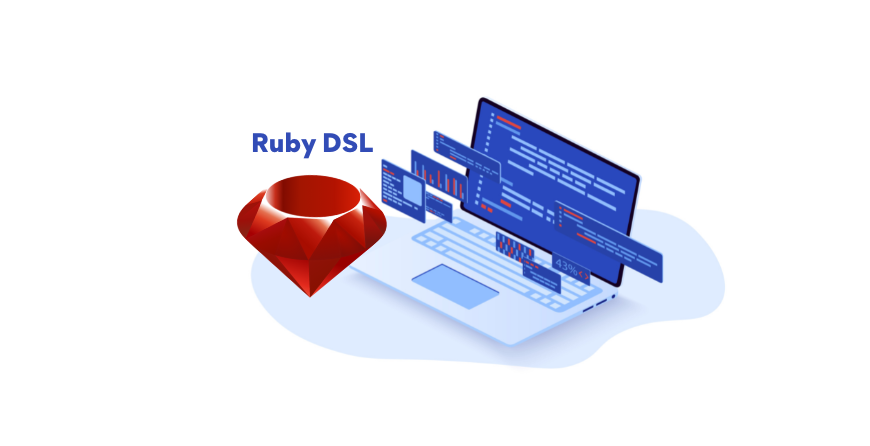Startup culture has become the new norm in the tech industry. Building a successful startup requires a startup development team that can take the product from imagination to reality.
According to reports, more than 305 million startups are created each year, and a large portion of them are tech startups. Although 90% of them fail to become successful tech innovation hubs, people still pursue their passion.
Do you have the same dream and an idea that can change the entire world? Building your startup can be tricky, but not impossible. Of course, the main ingredient is the product that will give you recognition in the market.
But you cannot build the product by yourself. For that, you need a startup development team to work on different aspects of the product, such as designing, programming, testing, and deploying your product.
But if you don’t know where to find this team and how to build a systematic startup development team, then this article will help you as it provides you with all the details.
What is Startup Development Team
A startup development team is a group of qualified professionals who shape your product idea into reality. This team works on designing, planning, building, testing, and deploying your product or MVP.
Following is a startup team structure that you can consider for your startup.
- Chief Technical Officer(CTO).
- Product Manager.
- Business Analyst.
- Project Manager.
- Developers(Frontend and backend)
- UI/UX Designer.
- QA.
- DevOps.
Startup Development Team Roles
1. CTO
- CTO is the inventor and the head of the startup development team who can drive innovation in the early stages of product development.
- Moreover, he will work on different strategies, plan your development phases, focus on your MVP and ensure that it will be delivered before the deadline.
2. Product Manager
- A product manager is the second most important role in a startup development team. He handles all tasks of your business layer, such as content, design, features, and functionalities.
- Most startups face more problems in the early stages of product development. To assist with every issue, product managers take measures and work on every issue effectively.
3. Project Manager
- A project manager plans, structures, and gives the right direction to a specific project according to its scope, size, and budget.
- Moreover, he acts as a mediator between the clients and the software development team to update products as per clients changing needs and keep them informed regarding its phases and deadlines.
4. Developers(FrontEnd and Backend)
- Developers are the backbone of a product development team. They build products by following the plans and development cycle to complete each phase within the deadline.
This core startups development team is divided into two parts:
- Front End
- Back End
i) Front End Developers
- Front-end developers implement the design through different coding languages such as HTML, CSS, and others according to backed logic. Moreover, they detect flaws and bugs on the front end part to optimize the performance and provide users with an intuitive user experience.
ii) Backend Developers
- Backend developers focus on programming the solution with different programming languages, database creation, Integrating APIs, setting security protocols, etc. They also perform basic testing operations and optimize solutions for utmost performance.
5. UI/UX Designers
- UI/UX designers work on designing the entire interface of products with the help of popular design tools. These designers build prototypes and quick design mockups to get approval and continue the development operations. Moreover, they work closely with developers and project managers to get feedback on designs, templates, and content pages.
6. QA
- The quality assurance team performs different testing operations on the product to measure its effectiveness and quality to identify flaws. A QA team is essential to verify the quality of the product and further work on resolving issues with the development team.
7. DevOps
- DevOps deeply analyzes the required resources for the project and introduces tools, methods, and strategies throughout the software development life cycle to complete the project with greater efficiency without compromising product quality.
Startup Development Team: Outsource Vs. In-house
A startup development team can be built through traditional in-house hiring or outsourcing. Many startup leaders rely on their in-house teams as they can monitor, control, and manage their product development in front of their eyes.
Though it’s the safest way, the in-house team produces poor-quality products while consuming a huge chunk of money. However, this is not the only case. More than 23% of startups say they failed because they didn’t get the right software development team.
Small businesses are aware of this situation, which is why they prefer outsourcing. So if you want to avoid hiring a bad team, following parameters will give you a brief idea.
1. Productivity
- Productivity is the key ingredient that makes your product robust. If you sacrifice productivity, your dream of a successful startup will be crushed. An in-house team operates from an office, which is always filled with disturbances and distractions, causing a low focus on product development. Moreover, as startups rush to develop MVPs, in-house teams are under constant pressure.
- On the contrary, the offshore startup development team works in a peaceful environment like a home, which increases their focus on product development. An outsourced startup development team still manages to keep up with the deadlines in a peaceful environment with rushing deadlines.
2. Cost
- Startups run on a tight budget. If they are building an MVP, chances are they have the lowest budget. An in-house developer demands $70,000 to $100,000 yearly, which a startup can’t afford. And even if they did, they won’t have a budget for other strategies.
- Moreover, they require office space, electricity, and other functionalities to operate, which has its expenses. Outsourcing a startup development team can be ideal for startups as they offer affordable packages and quality production. And since the outsourced software development team operates from their home, they don’t require the office space that comes with other expenses.
3. Talent
- A startup heavily relies on talented people to expand its operations and gain traction in the market. But most top in-house teams demand higher salaries, and as startups can’t afford these, they hire some beginner-to-mid-level development teams that fail to perform crucial tasks.
- However, the outsourced startup development teams are pre-vetted and have proven work experience serving tech giants and startups. Which means they can handle any crucial task.
4. Flexible Integration
- The growth of a startup is volatile; it may grow faster than expected or may even face downfalls. Hence, they should always expect the unexpected. To prepare and scale development teams as both the market and growth change. If you hire an in-house startup development team, you won’t be able to scale it up and down quickly, which affects your performance.
- Outsourced startup development teams are easily scalable since they are pre-vetted. All you need to do is interview and onboard team members. Moreover, they are hired on a contract. Once you have the product ready, you can stop outsourcing product development. It gives you the utmost flexibility to scale up and down teams as per your needs.
Where to Find A Startup Development Team
The easiest way to find a startup development team is to look for the ideal platform on the internet.
Start by searching on Google. You will find different platforms, from freelance to professional networking, where you can find your ideal team.
Job Boards
LinkedIn, Monster, Indeed, and Glassdoor are some popular job boards where you can find an ideal team for your startup.
The advantage here is that you can hire on-site and remote freelancers for your startups. But since many seek jobs on these boards, there is a possibility of bad hires, which may affect product development.
Moreover, they do not offer pre-vetted professionals, and you may have to structure a time-consuming test to assess every candidate’s caliber. Still, if you are confident in your hiring skills and want to assess candidates with your customized tests, then it’s an ideal destina.
Freelance Sites
As a startup owner, you might think of hiring remote freelancers to build your startup development team at an affordable price. Upwork, Fiverr, Freelancer, and many other freelance sites offer such services.
Although you get these benefits, if you are a beginner in hiring on these platforms, it’s tough to understand who will serve you the best and whom to pick.
Furthermore, freelancing sites do not offer verified professionals, and you might get scammed. For this reason, they are not ideal for gathering a startup product development team.
Freelance Talent Marketplace(Recommended)
The freelance talent marketplaces are emerging platforms focused primarily on providing qualified professionals to organizations, regardless of their size, at an affordable price.
Since the platform is responsible for vetting top talents around the world, startups don’t have to go through the hassles of testing candidates. Moreover, these platforms promise to find a suitable team within a few days, which is a benefit for startups as they are in a rush.
Additionally, they offer a support facility that you can use whenever something goes wrong. For these and many other reasons, the freelance marketplace is effective for every business.
How to Build a Startup Development Team
Know Your Requirements and Budget
Before you pick any of the mentioned platforms to hire a startup development team, figure out what you require.
Set goals for your product; define the type of audience, know what they need, and how your product can fulfill those needs.
More importantly, define a budget. This will limit your unnecessary spending and will allow you to contribute more to your product.
Other Essential Parameters:
- > Scope and size of the project.
- > Required number of team members.
- > The required experience level of each role.
- > Tech Stack of the development team.
- > Required technical skill sets.
Create a Job Description for Each Role
Now that you know what you need, start preparing a clear and concise job description for each role. Add all the necessary details of the job, including:
- > Required work experience for each role.
- > Project insights.
- > Each candidate’s responsibilities
- > Any tech stack or criteria involving technical background.
- > Period of engagement.
- > Academics.
Start Hiring
Now that you have a concise job description for each role, start contacting or posting jobs on the above platforms.
However, a freelance talent marketplace is recommended since they offer various facilities and other benefits.
So before you hire on a freelance talent marketplace, take the necessary measures, and contact each marketplace to find the best vendor.
To gain deep insights into each marketplace, focus on the following parameters
- > Check customer reviews, feedback, and ratings.
- > Find out what domains they cover.
- > Find out if they charge any hidden costs.
- > What facility do they provide?
- > Know how they hire and how long it takes.
- > Make sure they provide support.
Review and Interview
Once the talent marketplace provides you with a list of the best startup development teams, review their profiles and choose the best team to move forward with the interview process.
Before you interview, prepare technical questionnaires for each role to measure their caliber in technology and domain. This way, you can effectively analyze candidates’ performance to make an offer.
Onboard Startup Development Team
Once you choose the best candidates for each role, onboard them and get started with your systematic startup development. Make sure the team gets aware of your rules and regulations and also about company culture to avoid misconceptions.
Discuss and Assign Tasks
Now that you have your startup development team, discuss with the CTO, product manager, and project manager, assign tasks, and suggest a communication platform for regular meetings, messages, and calls.
Get regular updates, to ensure everything is executed as planned.
Use Modern Trackers and Tools
No doubt, you have hired an honest team who regularly contacts you regarding the updates about each phase of development.
Still, as the team operating from an offshore location, you will have to use a tracker to monitor your team and track their activities, such as when they started work when they took a break, and other activities.
Moreover, these trackers and monitoring tools measure the performance of your team members. So, if someone is falling behind, you can contact the project manager to resolve the issue.
One great advantage of these tools is that they generate reports and a performance chart of each role from which you get deep insights.
Conclusion
Startups are the innovation hubs. To ensure they survive in the long run, they need a systematic startup development team who can deliberately produce effective products.
Without a doubt, the offshore startup development team is a deal for startups because of their effective operations and affordability.
However, hiring an offshore startup development team can get tricky since startup founders are unaware of hiring procedures. This article will help many startup leaders to find and hire the best offshore startup development team and get maximum benefits.





